There's a huge gap between MER and your SSD client's true RFC.
Ready to close it?
ClaimData documents daily improvements that reflect your social security disability clients' true RFCs.
Get started free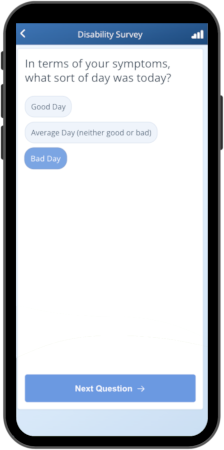
Medical records hardly ever show real functioning.
F Exhibits were never meant to be evidence in a disability case.
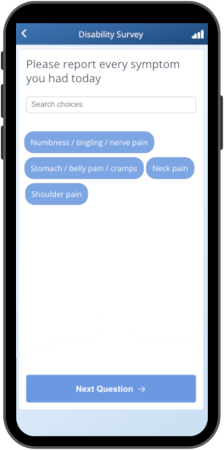
You're stuck trying to prove disability in a broken system using evidence — medical records — from another broken system.
- Daily or weekly questionnaires capture objective functioning, not subjective feelings.
- Lost time tracking captures time-off task.
- Like a mini-3373 (Function Report — Adult) SSD clients can complete in minutes per day.
Social security disability clients miss appointments and give vague reports.
You're left a weak record.
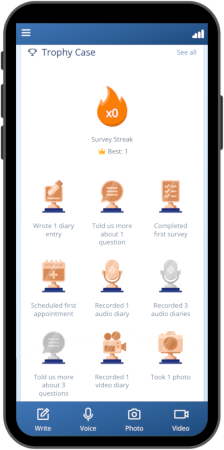
- Appointment tracking & reminders — plus gamification & streaks — keep SSD clients engaged with treatment.
- Up-to-the-minute overview — for a single client or for the entire firm — of all provider appointments.
- By recording their issues daily or weekly, clients make more complete statements at provider visits & hearings — "I get tired" becomes "I nap or lie down for about and hour 3 or 4 days a week".
ALJs can't follow clients around for a day.
But ClaimData gets close.
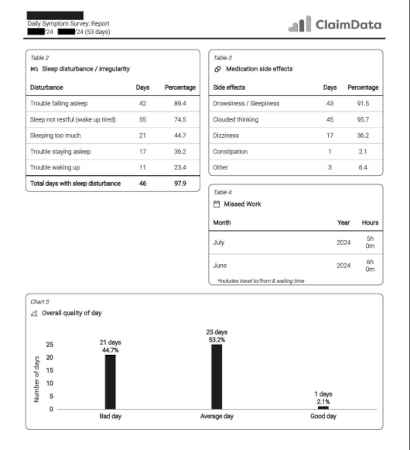
- Charts, tables & calendars quantify and show judges at-a-glance what clients really go through.
- Treating medical sources can stop guessing about RFCs — instead they'll review and corroborate actual functional impairments.
- Get a copy of a MSS form that allows providers to corroborate ClaimData reports.
Stay ahead of problems.
Fewer surprises means faster hearing prep & more predictable hearings.
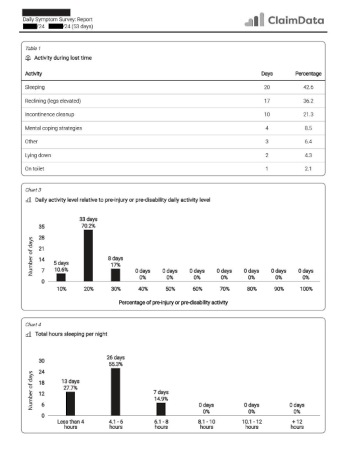
- A ClaimData snapshot early in the claim guides treatment and case prep.
- Know if clients have been working before you prep for hearing.
- Know where clients are getting treatment before they call asking for updates.
- Daily or weekly client updates minimize surprise hearing testimony.
Make SSD clients feel heard
Every client wants to feel like your only case but you have to run a volume practice.
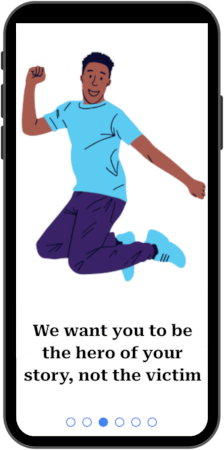
Clients feel disempowered both by the Administration and by the medical system.
- ClaimData gives disability clients a voice, making them feel supported and heard even during long waits to hearing.
- Clients who feel valued and prepared for hearings call less often, reducing stress for staff.